My personal journey at Mazar-e-Quaid, Karachi
I will confess that when I first visited the tomb of Mohammad Ali Jinnah, the Mazar-e-Quaid, in Karachi, I failed to appreciate its importance. Having travelled around the Middle East for months prior, I walked around back in February 2006 like it was just another historic attraction to take pictures of, along with the Pyramids of Giza, and the Taj Mahal. Infact my lack of understanding back then may have been worse – at least I had some emotional and historic context for the other two sites. What I’m about to say is like “travel blogger sacrilege”, but Mazar-e-Quaid, on the other hand, seemed like a place I wouldn’t need to come back to once I had ticked it off the list. How wrong I was.
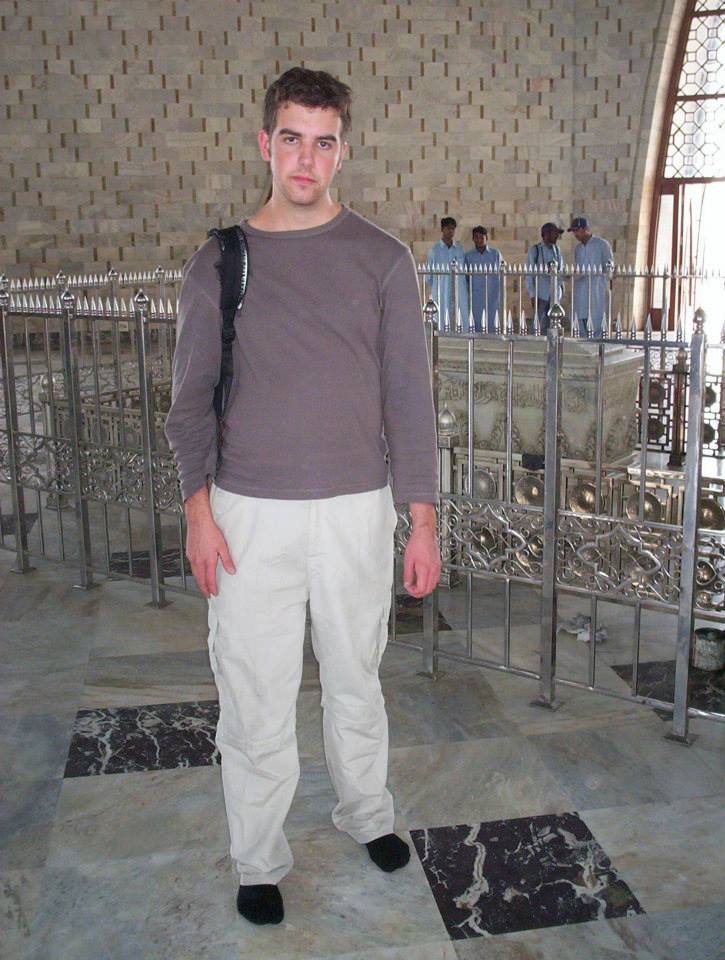
Me, not looking terribly impressed, at Mazar-e-Quaid in 2006
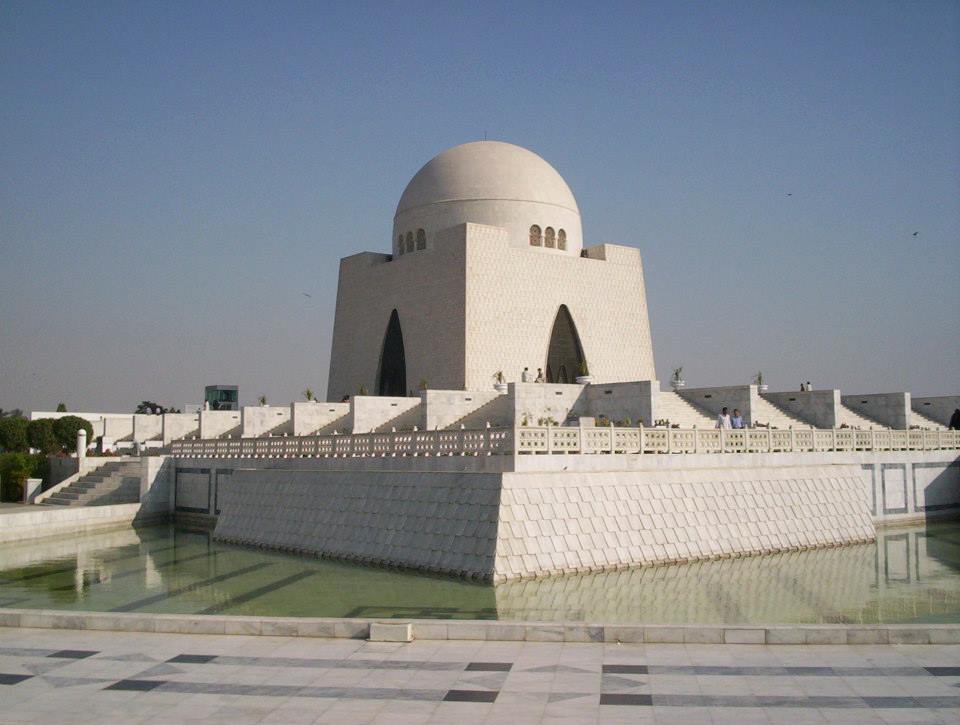
Mazar-e-Quaid in 2006
Fast forward eleven years. It’s 2017, and I now call Pakistan home. I’ve never felt as invested, as much like I wanted to be in a place, as I do the “land of the pure”. There’s something about it which calls me – and I can’t explain what – but all I know is once I step off the plane at the airport, I let my guard down. If you’ve never felt that before, then this will sound cliched and contrite, but if you’ve experienced that you’ll know exactly how addictively blissful it is. I can finally be myself, in my own skin. I’m home.
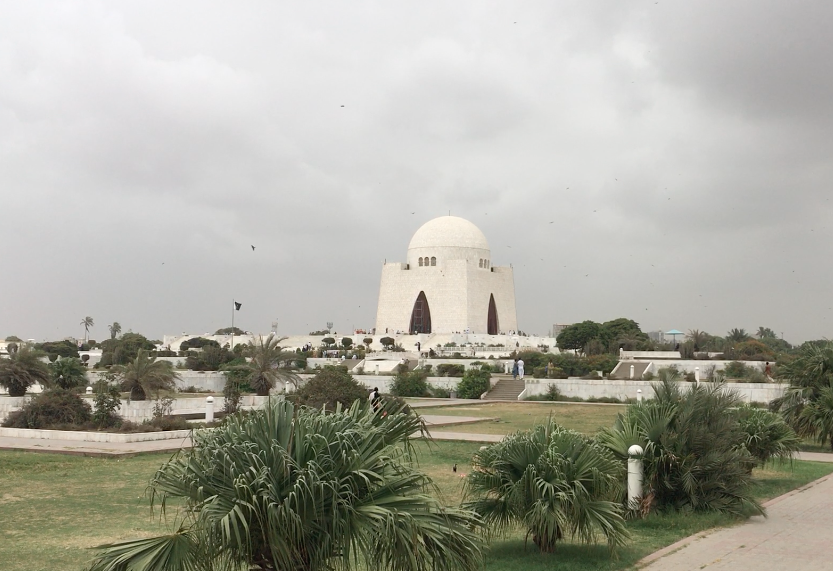
Mazar-e-Quaid in August 2017
In August I paid a visit to Mazar-e-Quaid for the first time in eleven years. My research for my book had taken me past there a few times, but never simply to visit and appreciate. To appreciate Mazar-e-Quaid you need to understand what Mohammad Ali Jinnah did, and moreover what he represents to the millions of people who call Pakistan home.
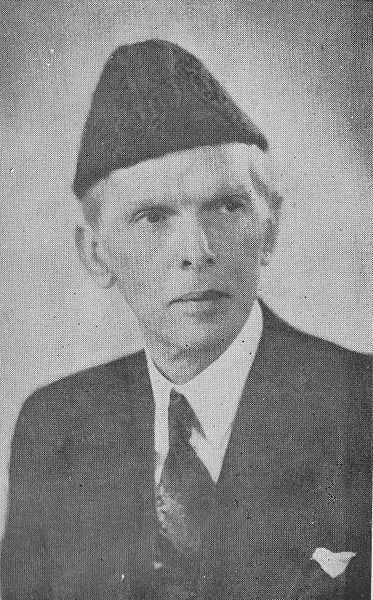
Muhammad Ali Jinnah (Image: Published in Muhammad Ali Jinnah: A Political Study by Matlubul Hassan Saiyid [Lahore: Shaikh Muhammad Ashraf, 1945])
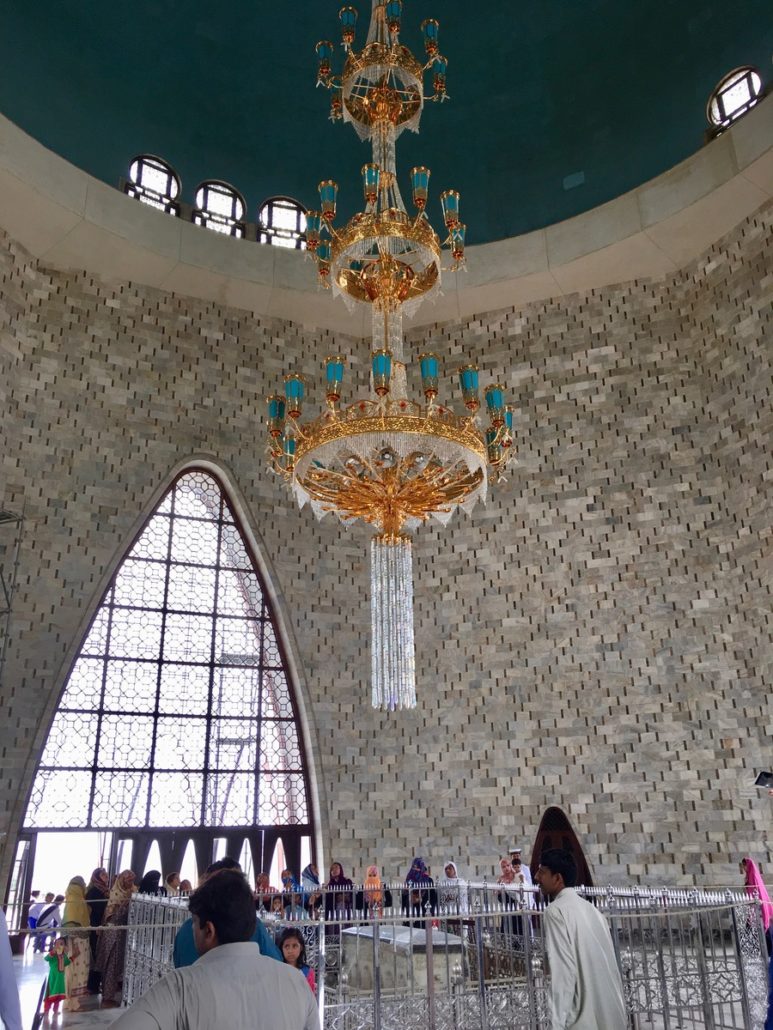
Approaching the tomb
Approaching the tomb, I was struck by a sense of awe that was absent in the heady days of 2006. It dawned on me that I was visiting the resting place not just of some political leader whose life was of little consequence to my own; I was visiting the man who had created a vision under whose spell I had fallen. My story couldn’t be further removed from those who made the perilous journey from India in 1947 – and to even suggest as such is insulting. But it was because of Jinnah that we were standing there at his tomb, face to face, in Pakistan.
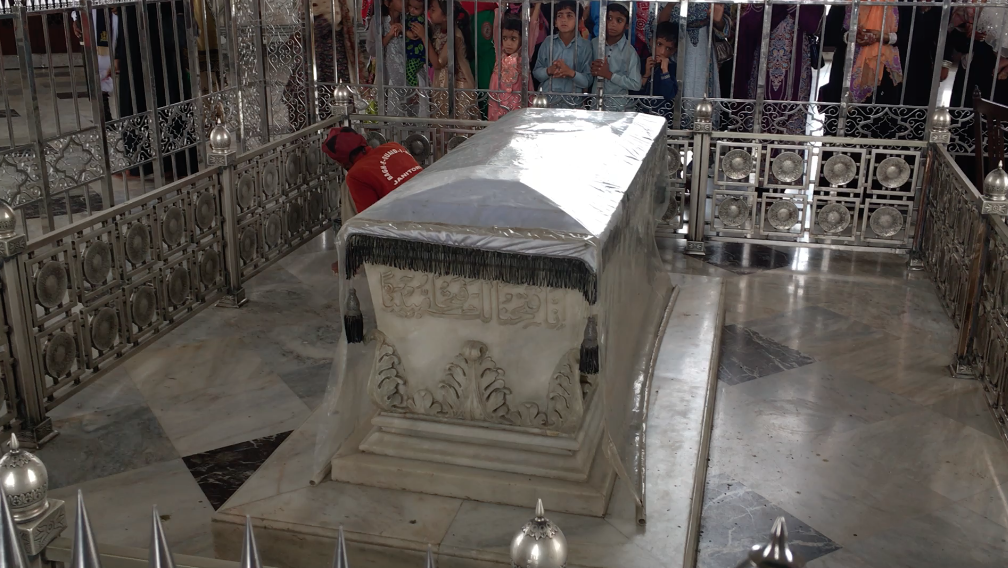
The final resting place of Mohammad Ali Jinnah
Sometimes I struggle to think about what to write for these weekly posts; the way being a foreigner somewhere turns the banality of daily rituals into interesting cultural differences have largely melted away. I’ve written a book about Pakistan, and daily life in Pakistan is now my “normal” – I’m not a tourist any more.
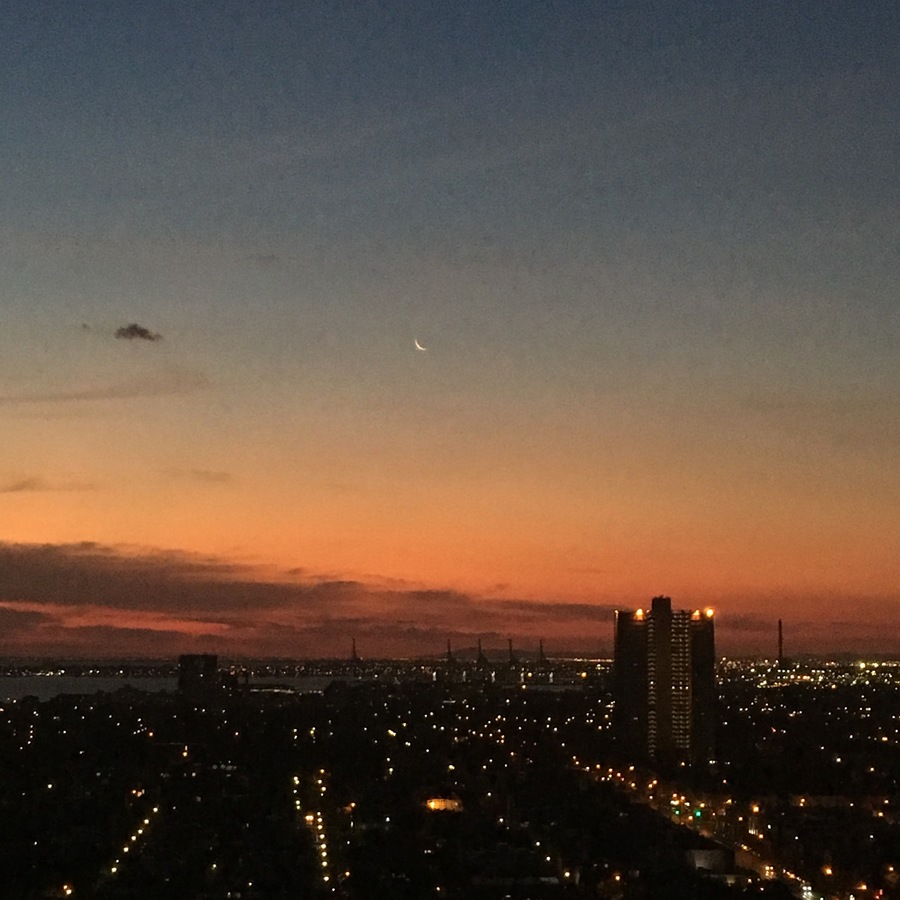
Yesterday, after an exasperating day, I came home with a million things on my mind and the last thing I felt like doing was trying to be creative. That was when I saw it – the crescent moon hanging in the orange maghreb sky. Today is the first of Rabi al-Awwal, the Islamic calendar month in which the Prophet Muhammad ﷺ was born. Suddenly a flood of hope came rushing back; the new month, a new start, the crescent moon, the Pakistani flag, Mohammad Ali Jinnah… hope. I knew what I would be writing about.
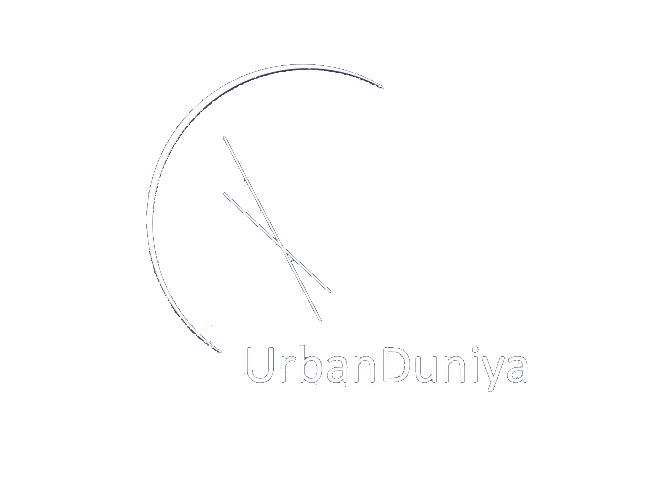
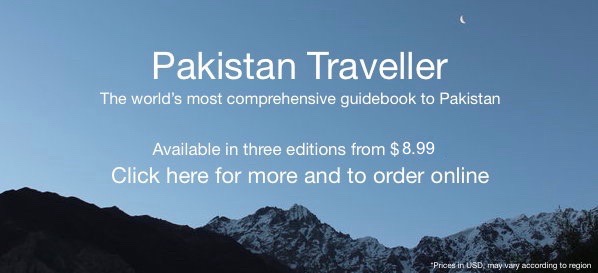
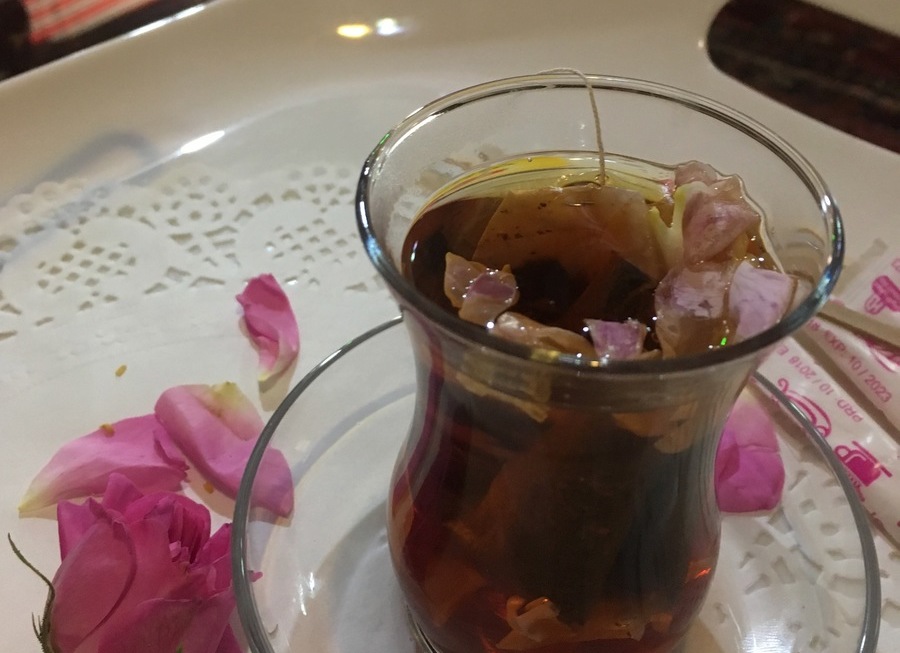


Great post Tim. You have clearly fallen under the spell of Pakistan. Easy to understand from my brief journey there this time last year. The sights, sounds, food, people and contrasts – crazy urbanity to the magic of the Hunza Valley – make it hard not to fall in love with.
Thanks Simon! It really is such a wonderful, underrated country <3
Absolutely amazing Tim! i totally understand and feel what kind of sense you are talking about that you felt whilst being in Pakistan, i too feel the same about this country where i’ve lived my entire life and appreciated, there’s something special in the air in this country and in the people which you will never find and feel any where else in the world and lastly yes Jinnah saheb is someone whom everyone is passionate about in this country you see his life personality charm and the way he confronted his political opponents both Britishers and Indians is something which drags you in immense awe, there’s film about his life named ‘Jinnah’ its a master piece although it only allows us to sneak into a very little part of his life but its worth a film to watch 🙂
i am tarek from Azad Kashmir.
Thanks for commenting! Yes, there is certainly something special about Pakistan, and Jinnah is one of the modern history most important figures. The film is great too – I loved it!
The architecture of this place is simply remarkable and outstanding, Tim. It seems worth visiting, and that chandelier is awesome. 😉
Thanks Agness! I hope I can show you around there one day soon!
being able to understand meanings and so on when we travel is ALWAYS going to be a challenge. But you’ve made such a connection in Pakistan, it can make everything you see so much more rewarding. great post Tim!
Thanks Andy. I really wasn’t expecting to have that sense of familiarity and understanding rush over me when I came back all those years later. Really incredible feeling.